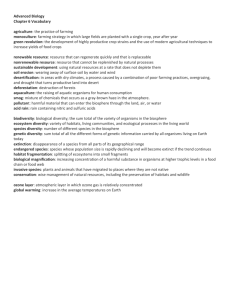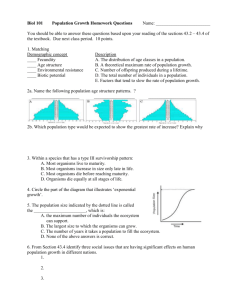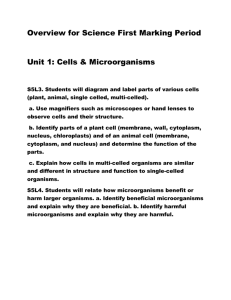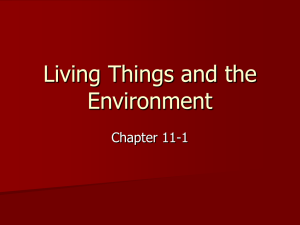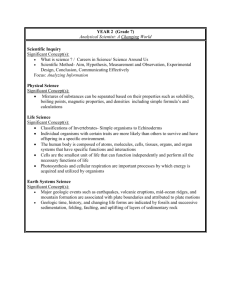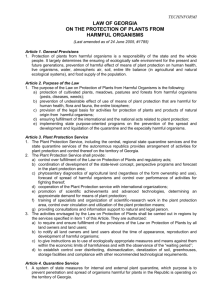PAN Europe`s comment to EU proposal for a Plant Health Strategy
advertisement
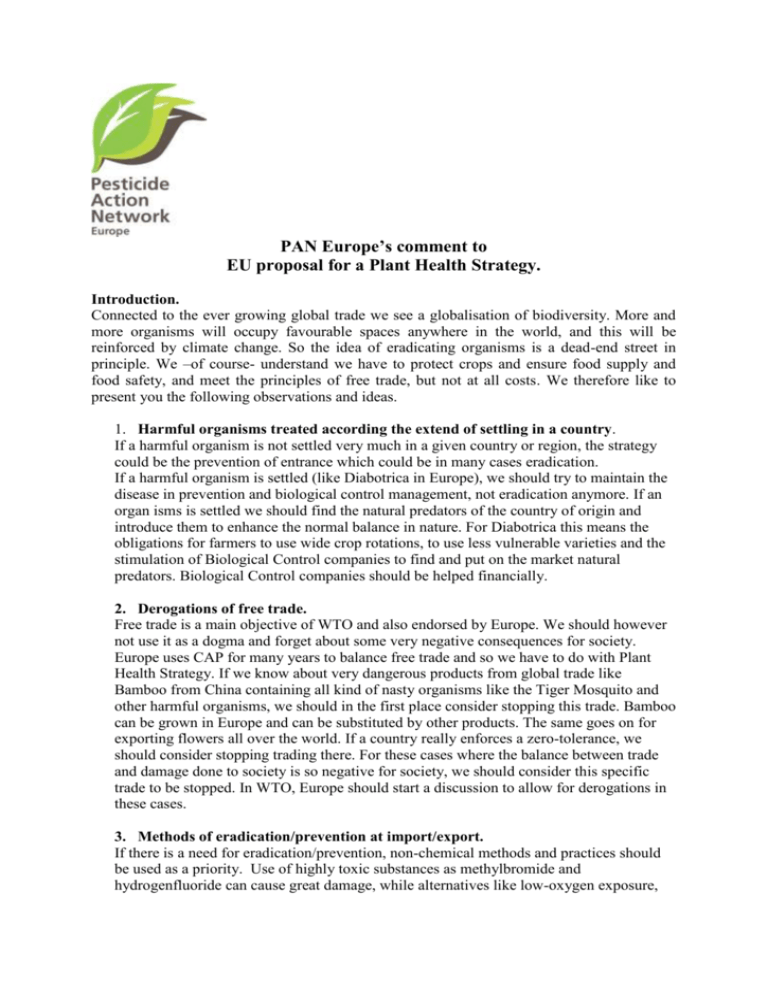
PAN Europe’s comment to EU proposal for a Plant Health Strategy. Introduction. Connected to the ever growing global trade we see a globalisation of biodiversity. More and more organisms will occupy favourable spaces anywhere in the world, and this will be reinforced by climate change. So the idea of eradicating organisms is a dead-end street in principle. We –of course- understand we have to protect crops and ensure food supply and food safety, and meet the principles of free trade, but not at all costs. We therefore like to present you the following observations and ideas. 1. Harmful organisms treated according the extend of settling in a country. If a harmful organism is not settled very much in a given country or region, the strategy could be the prevention of entrance which could be in many cases eradication. If a harmful organism is settled (like Diabotrica in Europe), we should try to maintain the disease in prevention and biological control management, not eradication anymore. If an organ isms is settled we should find the natural predators of the country of origin and introduce them to enhance the normal balance in nature. For Diabotrica this means the obligations for farmers to use wide crop rotations, to use less vulnerable varieties and the stimulation of Biological Control companies to find and put on the market natural predators. Biological Control companies should be helped financially. 2. Derogations of free trade. Free trade is a main objective of WTO and also endorsed by Europe. We should however not use it as a dogma and forget about some very negative consequences for society. Europe uses CAP for many years to balance free trade and so we have to do with Plant Health Strategy. If we know about very dangerous products from global trade like Bamboo from China containing all kind of nasty organisms like the Tiger Mosquito and other harmful organisms, we should in the first place consider stopping this trade. Bamboo can be grown in Europe and can be substituted by other products. The same goes on for exporting flowers all over the world. If a country really enforces a zero-tolerance, we should consider stopping trading there. For these cases where the balance between trade and damage done to society is so negative for society, we should consider this specific trade to be stopped. In WTO, Europe should start a discussion to allow for derogations in these cases. 3. Methods of eradication/prevention at import/export. If there is a need for eradication/prevention, non-chemical methods and practices should be used as a priority. Use of highly toxic substances as methylbromide and hydrogenfluoride can cause great damage, while alternatives like low-oxygen exposure, freezing or drying are at hand in most cases. Even for fresh products like flowers alternatives are present and more alternatives should be actively promoted and subsidised. Only as a last resort, chemicals should be used. A EU-policy should be developed to achieve this and enforcing of this policy in authorisations realised. 4. Making our agricultural system stronger. One of the reasons of rapid spread of harmful organisms is the vulnerability of our agricultural system. Monocultures like Maize or Sunflowers are all over Europe and have hardly any resistance to external influences because the normal ecosystem is lacking. Use of vulnerable varieties (producing high yield) only add to this vulnerability because many of the ‘old’ resistance features are gone by breeding. Additionally many landscape elements like ditches, hedges, trees and unused buffer zones have disappeared in the intensivation and ‘rationalisation’ process agriculture is gone through. Any damage done by harmful organisms therefore will be prevented best in the end by making the system stronger. This is the best cost-effective means for the Plant health Strategy. Making the system stronger can be done. Then alternatives are there, like in integrated crop management. Costs are even hardly a point in making this transition. Most of all we need the right incentives, setting examples and make them the local hero, create the right extension services and use CAP money for rewarding the best farmers. For further information: Hans Muilerman, PAN Europe Brussels office tel: + 316-55807255; email: hans@pan-europe.info Pesticide Action Network Europe (PAN Europe) was founded in 1987 and brings together consumer, public health, and environmental organisations, trades unions, women's groups and farmer associations from across 19 European countries. PAN Europe is part of the global network PAN working to minimise the negative effects and replace the use of harmful pesticides with ecologically sound alternatives.
